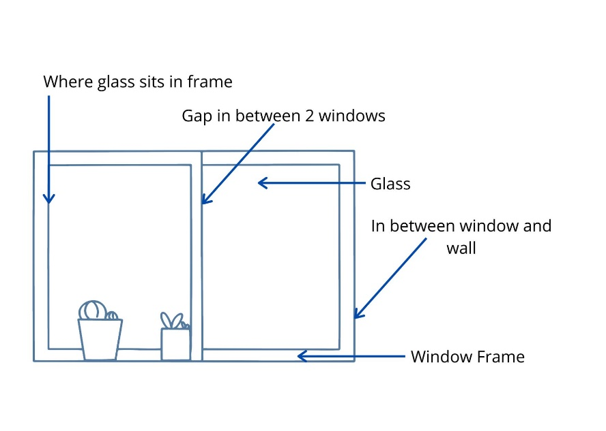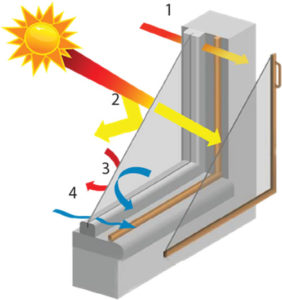
Working from home during the Circuit Breaker, we had the chance to experience a large variety of sounds enter our spaces, many of which we had never noticed before.
You may be wondering how these sounds can get in – even though your window is closed. Well, it is simple – Sound is sneaky. You give it the slightest chance and it will wiggle through any gap. And windows and doors are usually the weakest spot in a wall or façade when it comes to sound leakage.
Did you know that sound waves, unlike light waves, can bend around corners, penetrate solid objects and curve through microscopic gaps that we didn’t even know were there? Sneaky.
Here are a few ways sound can enter through your closed window:

- Through window panels that do not seal properly. If you have a sliding window, there is no compression that seals the airflow from the outside to the inside. If you have a push-out window with a single sliding lock, then often on the top and bottom of your window panel the window is not pressed onto the seals. If the windows do not close tight then sound can enter through the gaps. Run your hand along the edges of the closed window to see if there gaps.
- Where the glass sits in the frame: With time, your glazing might have become loose. This can not only cause the glass to rattle in the wind but also creates a route for sound to come in. Inspect all around the seal both inside and outside to find any tears, missing or torn rubber, silicone or filler.
- Between window frame and wall: Although it looks sealed up, there could be small, hairline cracks between window and wall which would allow sound to come in through hollow areas in the wall on either side. Have a look along all sides of the window to see if there are cracks or openings visible.
- The Window Frame: Depending on the type of profile, sound can come straight through the window frame. Especially if you have hollow aluminium frames this can be a major source of sound transmission, no matter how good your glass or sealing. Solid or foam-filled window frames are absorbent and therefore less sound can move through. You can put your ear on your window frame and have a listen to find out if your window frame is hollow.
- Through the Glass: Yes, sound can and does travel through glass. The thinner the glass then the more sound goes through it. Sound travels through glass because it’s a rigid material.
So, the next time you reach for the ear plugs or noise-cancelling headphones at home, have a good look at your windows to see if you can spot the problem.
The BCA (Building and Construction Authority) in Singapore recommends that all windows are thoroughly checked every 6 months to ensure they are safe and secure.




